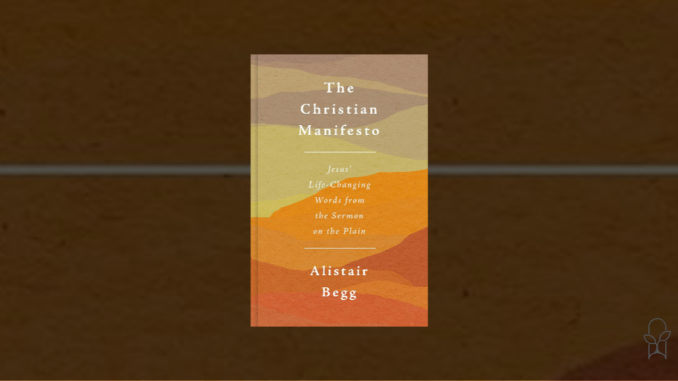
Also by this author: Brave by Faith: God-Sized Confidence in a Post-Christian World, Brave by Faith: God-Sized Confidence in a Post-Christian World
Published by Good Book Company on September 1, 2023
Genres: Non-Fiction, Christian Life
Buy on Amazon
Goodreads

Encourages Christians from Luke 6 to live a countercultural life and experience true blessing.
What does genuine Christian living look like in the 21st century, and how can we be motivated to live that way?
The answer comes from Jesus’ sermon in Luke 6 (sometimes known as the Sermon on the Plain), which starts, “Blessed are you who are poor, for yours is the kingdom of God," and goes on to lay out God’s vision statement for the Christian life. It is a manifesto that transcends politics, culture and personality, detailing God’s intentions for his people.
Alistair Begg unpacks this sermon, encouraging Christians to live a radically different life that upends the world's values and philosophies. It's a lifestyle that is counterintuitive and countercultural, yet one that God blesses with true meaning and impact.
As we look at the kindness and compassion of Jesus and ask for the Holy Spirit’s help, we’ll grow in both the motivation and the ability to obey Jesus’ teaching and experience the blessing that comes from that.
This compelling book will remind you of God's grace and what it means to follow him, helping you discover the ultimate blessing that is found in him.
I just need to stop reading Alistair Begg. This is my own fault. My theological leanings have shifted and where I once found myself in agreement with Begg’s theology and methodology, now I do not.
First, a note on theology: A Christian Manifesto is a short book that is a practical commentary of Jesus’s Sermon on the Plain from the Gospel of Luke 6. It is, in many ways, a parallel sermon to the Sermon on the Mount of Matthew 5-7, containing much of the same material. These two messages are similar in content and theme, but address different political economies. The Sermon on the Mount was given to large crowds in Judea; The Sermon on the Plan was given to people in Galilee. The first sermon is like speaking to a national audience; the second is speaking to a regional audience. It’s a bit odd to address the Sermon on the Plain without contextualizing it alongside the Sermon on the Mount—the more popular passage from which to draw A Christian “manifesto”—but that’s what Begg does.
I also think Begg errs by reducing the Beatitudes to commands to be happy. It’s a simplistic explanation that leads to some poor theology. Happy are those who are sad? Particularly as Begg does not define or contextualize what he means by happiness, we are left with what Begg interprets as a seemingly paradoxical command. Rather, I believe the beatitudes are best translated as “God’s favor.” It’s not about happiness; it’s about having God’s favor. Exchange Jesus saying “happy are those who are poor” to a poverty-stricken audience to “God’s favor is upon those who are poor.” Do you see how that changes the theological outlook?
But enough of the theology, let’s turn to methodology. A lot of pastors write books out of their sermons. The content is first preached, then repackaged into book form. That’s fine. But here, it makes the book just look packaged. It doesn’t seem organic. It feels adapted. There’s no great deep dive into Scripture. It’s all superficial and simply not that engaging. The book feels cobbled together for the simple purpose of selling books. I’ve really enjoyed The Good Book Company in the past, but whether it is my shifting theology (though I don’t think so as I still love their older books!) or a change in what they’re publishing, I’m not finding the quality of material I had come to expect from the publisher.
